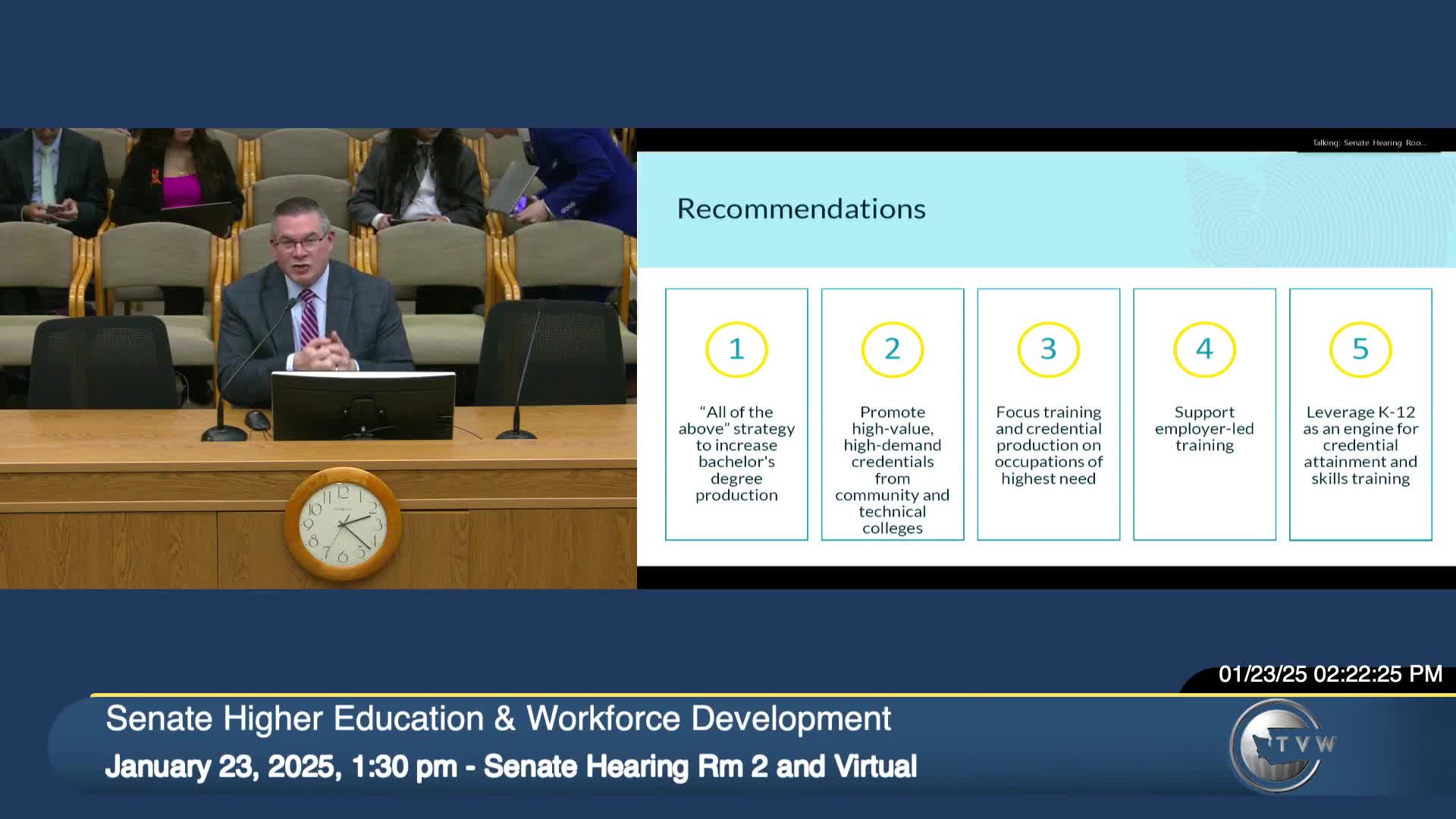Article not found
This article is no longer available. But don't worry—we've gathered other articles that discuss the same topic.
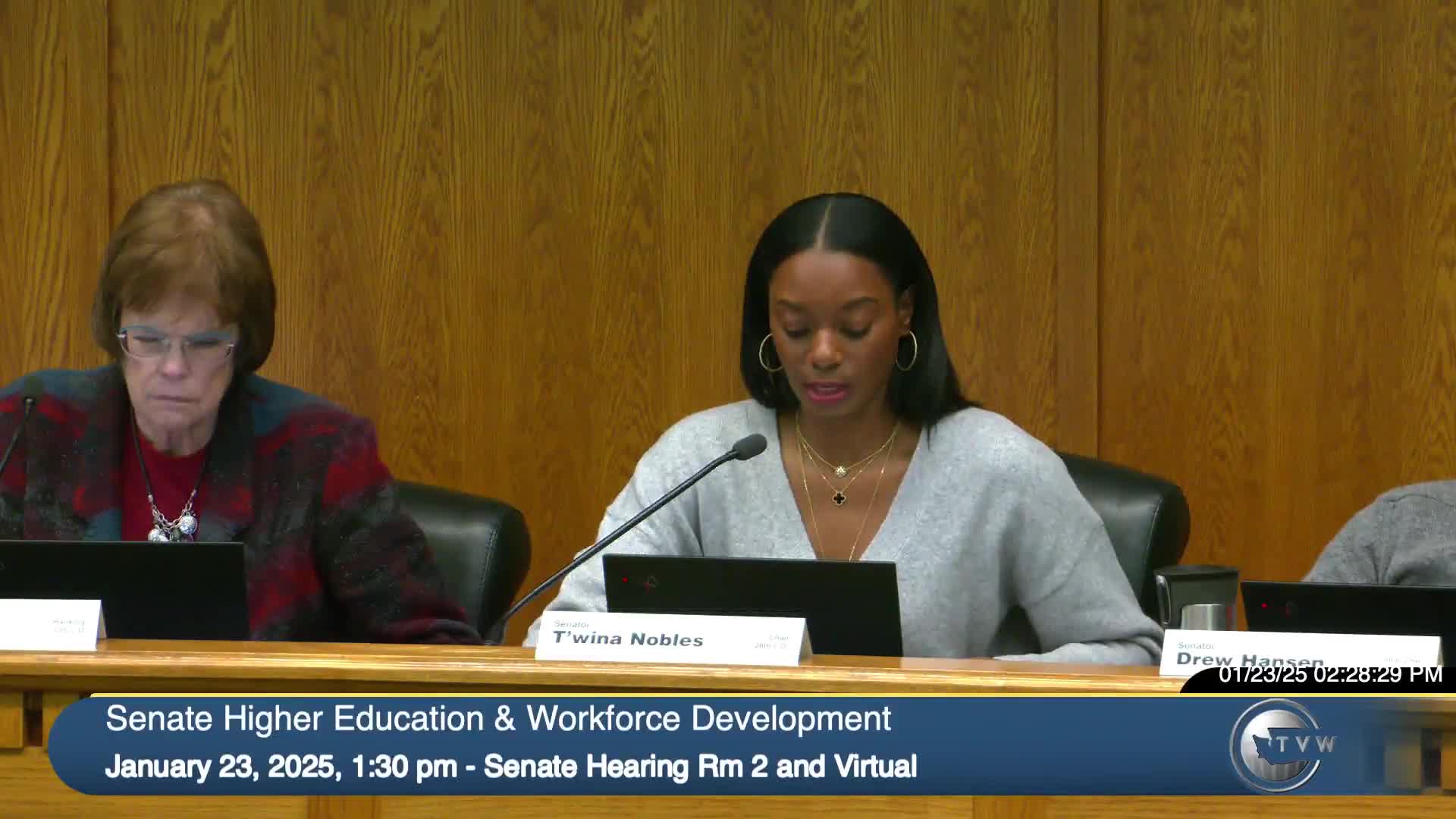
Executive session: committee advances two bills — tribal‑elder tuition waiver and student‑athlete insurance authorization
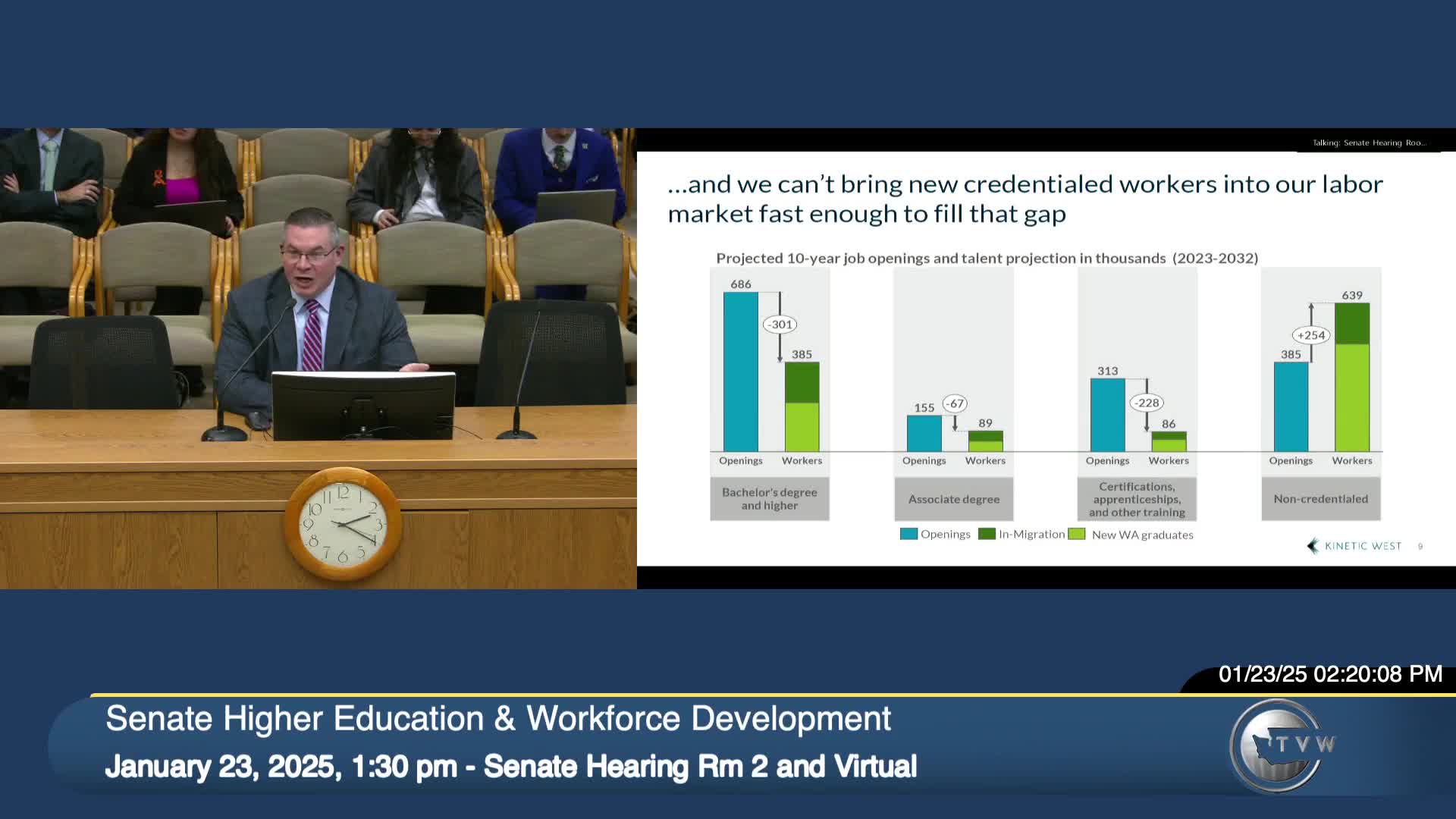
Senate hears bill to establish Washington Guaranteed Admissions Program to notify qualifying high school students
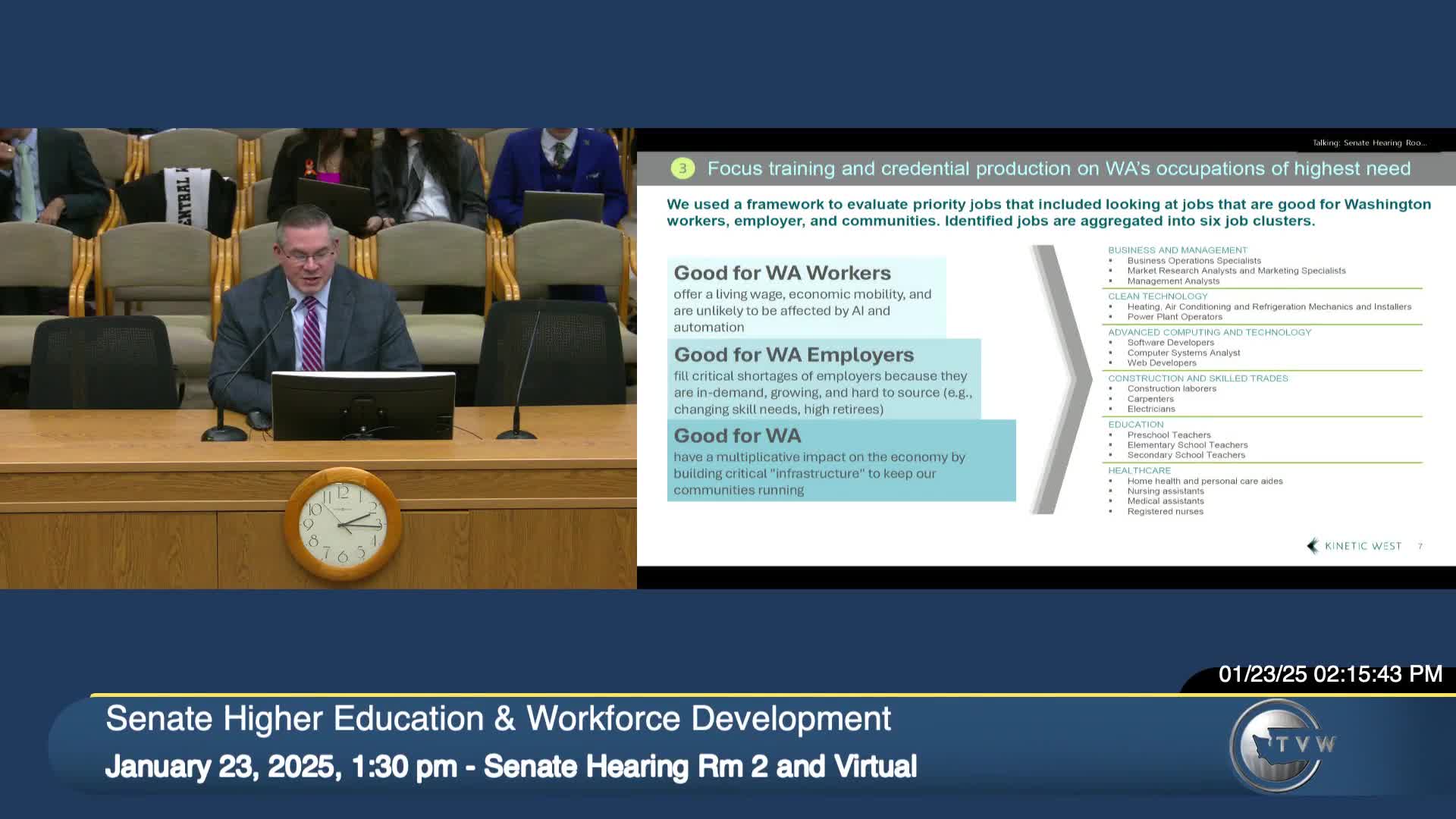
Committee hears bill to extend homelessness and foster‑youth supports to Northwest Indian College
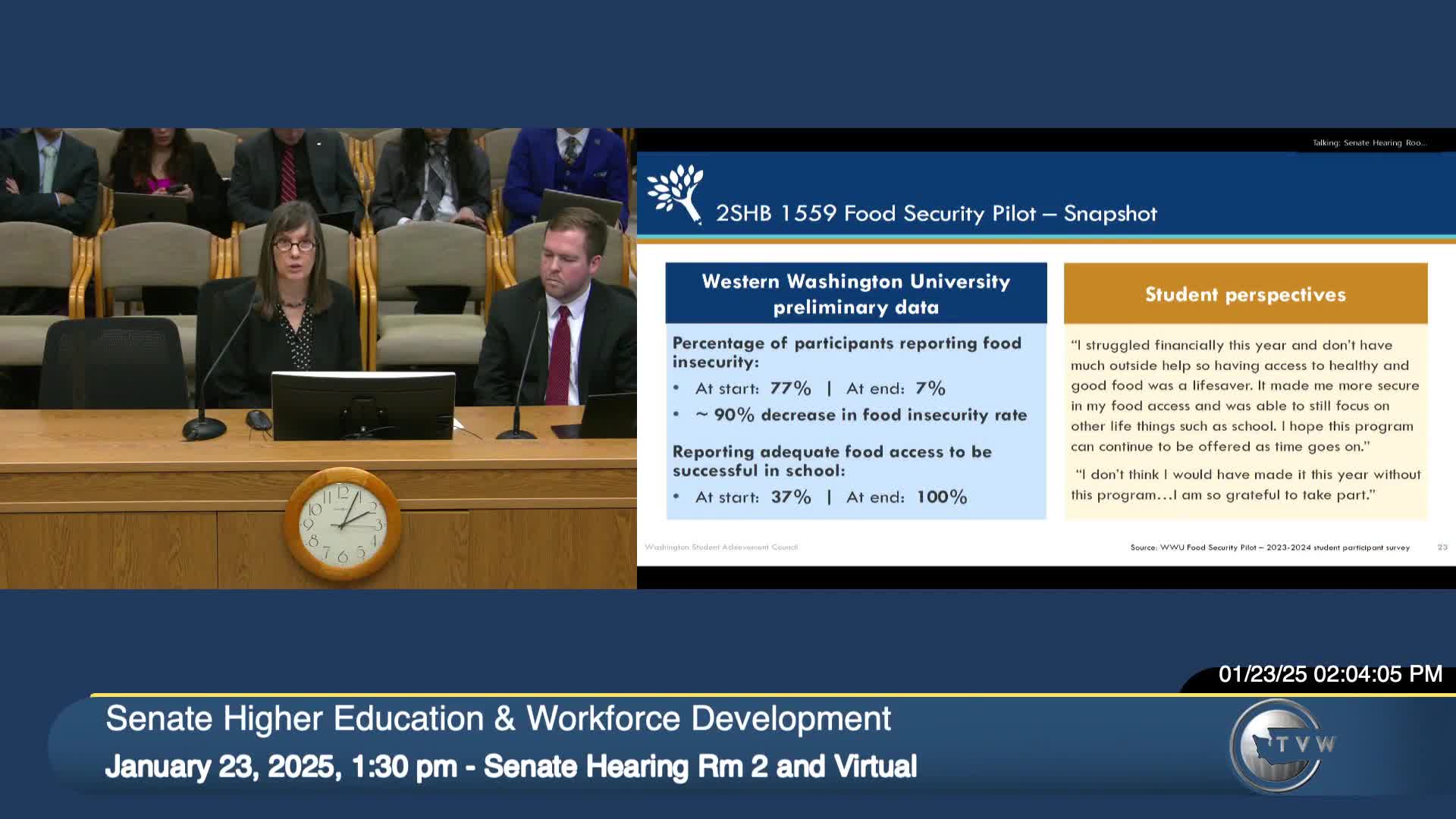
Senate hearing: bill would make Passport to Careers an entitlement and raise award to $5,000; students and university staff urge passage
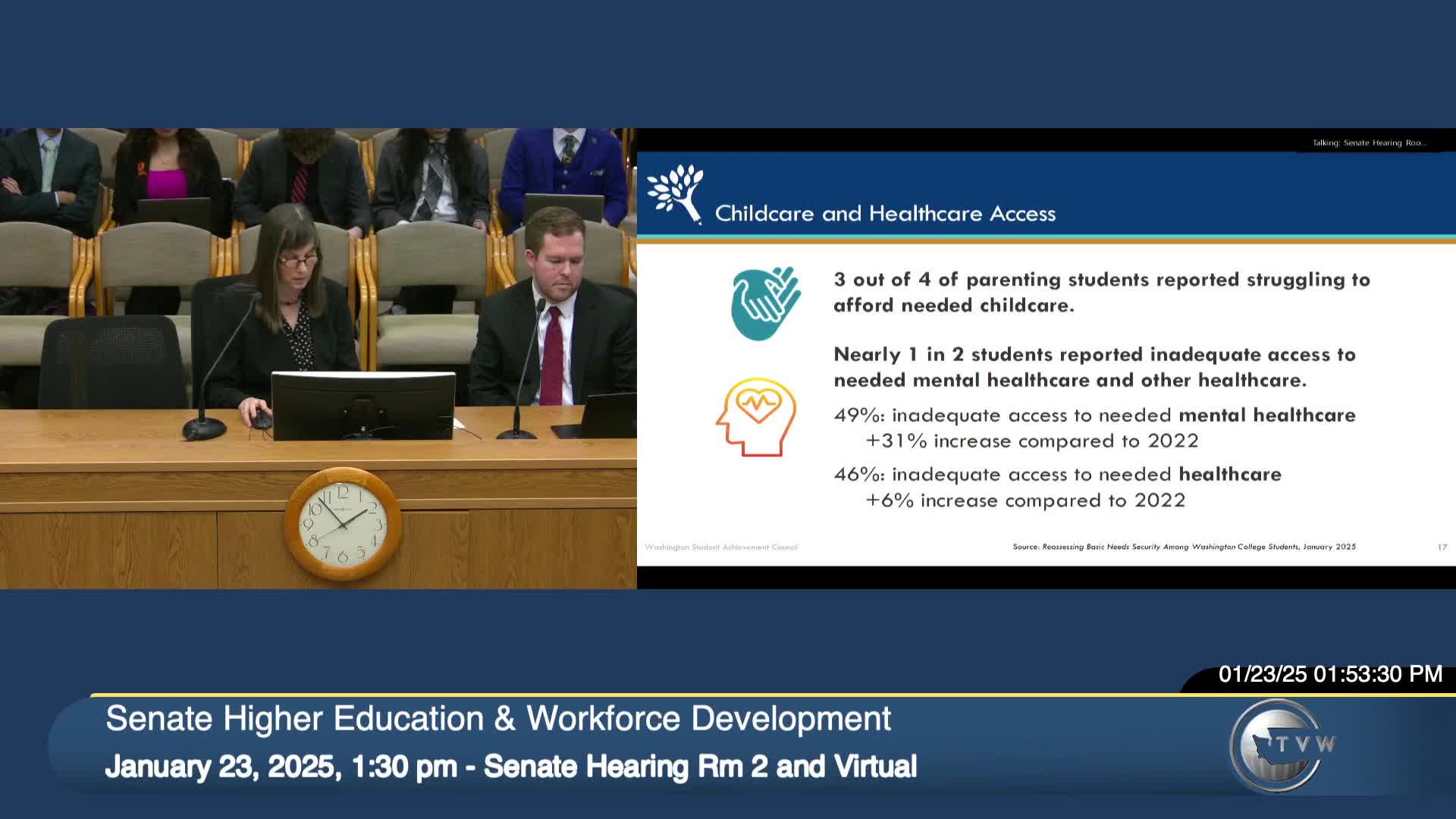
Washington Roundtable projects 1.5 million job openings over next decade, urges focus on bachelor’s degrees and high‑value credentials
